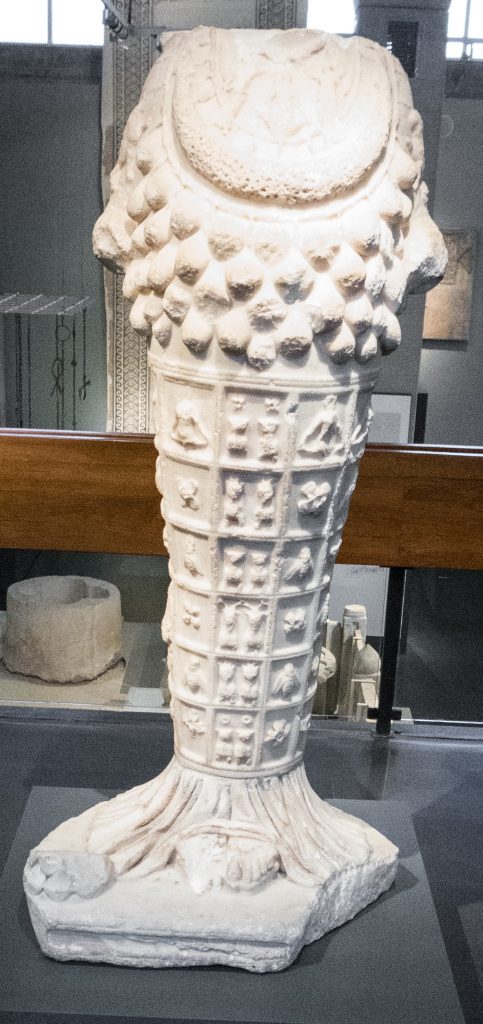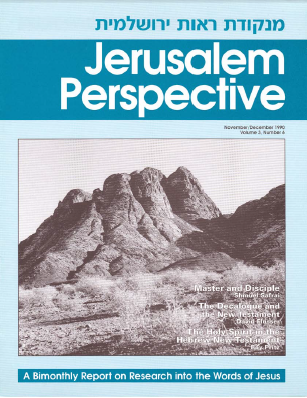I am not in favor of assigning the feminine gender to God, but…does the name “El Shaddai” really express a feminine side of God?
—Mrs. Joseph H. Kricks, Bethlehem, PA, U.S.A.
Stephen Schmidt replies:
As was pointed out in “Hebrew Nuggets” in the Sep/Oct 1989 issue of Jerusalem Perspective, p. 13, the meaning of Shaddai is uncertain. The traditional translation of “Almighty” goes back to an early rabbinic understanding of the word שַׁדַּי (sha-DAI): “sha” meaning “the one who,” and “dai” “enough, sufficient,” thus rendering “El Shaddai” as something like “God the Self-sufficient One.”

Certain scholars, assuming a relationship to שָׁדַיִם (shā-DA-yim, “breasts), claim a parallel to the “the many-breasted one” of ancient Near Eastern religions, which would suggest “abundant supplier.” But the evidence here is slim at best.
Some people have tried to see theological significance in the fact that in Hebrew the gender of רוּחַ הַקֹּדֶשׁ (rū⋅AḤ ha⋅QO⋅desh, “the Holy Spirit”), the third person of the Trinity is feminine. This seems to them to indicate that the Trinity is a family: father, son and mother. However, in light of the random distinction Hebrew makes between masculine and feminine (see David Bivin’s JP Sidebar “The Intricacies of Hebrew Gender”), one should not come to any absolute conclusions regarding the significance of gender in Hebrew words.
—Stephen Schmidt
































































































